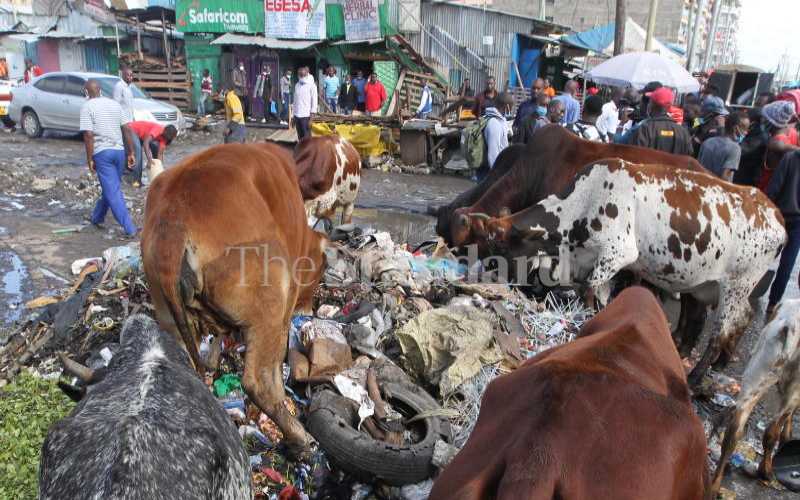
Our Projects are
Transforming African Trade
Quick Contacts
2nd Floor, Fidelity Insurance Centre Waiyaki Way, Westlands

The African Union unveiled the Animal Health Strategy for Africa (AHSA) 2018-2035 to strengthen animal health, animal production, productivity, animal safety, public health and a continent for a healthy environment.
AHSA 2018-2035 is “a continental framework for delivering a sustainable animal health system that meets global standards. Healthy animals for more livelihood, a safe trading community and environmental health ”.
The strategy, validated in Kigali, Rwanda, in November 201
8, was endorsed by the African Union Technical Committee, which included ministers responsible for animal resources, water, agriculture and the environment.
The strategy was endorsed at the Summit of Heads of State and Government in Addis Ababa, Ethiopia, in February 2020.
The Animal Health Strategy for Africa (AHSA) 2018-2035 is “a continental framework for delivering a sustainable animal health system that meets global standards. Healthy animals for more livelihood, safe public and environmental health ”.
The aim is to address the challenges faced in the provision of animal health services on the African continent. It is aligned with the Animal Development Strategy for Africa (LiDeSA).
In addition, it offers more targeted strategic interventions and approaches to holistically address the health of bees and water bodies as part of the One Health (OH) approach.
The aim is also to align animal health services on the continent with the relevant global, continental and regional strategies and frameworks.
Therefore, it serves as an overarching strategy to improve the efficiency and effectiveness of animal health measures on the continent.
“The strategy builds on the achievements of past and ongoing interventions to address animal health problems in Africa and draws on lessons learned and best practices. It also identifies several success factors that are required to achieve the goals.
Given the variety of interventions required for effective, efficient and sustainable animal health delivery systems, stakeholder engagement, partnerships, and multi-sector planning and implementation will be vigorously pursued to achieve the strategy’s objectives.
Member States will take a leading role in mobilizing and implementing resources and adapting their interventions according to their specific characteristics and the associated 5-year implementation plan (2020-2024) of the AHSA ”, says HE Amb. Josefa Leonel Correia Sacko, Commissioner for rural economy and agriculture.
The strategy aims to address the challenges of a harmonized provision of animal health services within the framework of the one health approach.
The One Health Approach is a collaborative, cross-sectoral and transdisciplinary approach to work at local, national, regional and global levels in order to achieve and recognize optimal health and well-being of all animals, people, plants and their common environment their inseparable links.
Africa’s one health approach encompasses neglected endemic diseases and the strengthening of cross-sectoral links and health interfaces between humans and animals.
Africa’s animal resources, which include livestock, aquatic animals and wildlife, contribute significantly to the societal needs and well-being of Africa through agriculture, food and non-food products, including tourism and other environmental services.
Other animal industry resources such as aquaculture, beekeeping, vermiculture and other non-conventional small-scale livestock farming such as rabbits are underutilized.
The diseases and housing problems that arise from these relatively new production systems need to be addressed.
On average, livestock alone accounts for 35% of the national agricultural GDP. For the reasons outlined above, the AHSA is expected to help achieve the goals of the African Union Agenda 2063 and the Malabo Declaration on Accelerating Transformation of Agricultural Growth for Shared Prosperity and Improved Livelihoods, the Africa Continental Free Trade Area and the Feed Africa Strategy.
In addition, AHSA will contribute to the goals of the Animal Development Strategy for Africa (LiDeSA), the Animal Welfare Strategy for Africa (AWSA), the Fisheries and Aquaculture Policy Framework and Reform Strategy (PFRS), and the African Strategy to Combat Illegal Exploitation on Wild Flora and Fauna as well as the political framework for pastoralism in Africa among others.
The implementation of the AHSA will lead to an improved ability to anticipate and mitigate the negative effects of animal diseases, zoonoses, climate change and disasters on healthy and productive animal populations, as well as better access to regional and international markets for African animals and animal products.
This will also result in all actors in the value chain being more closely involved in the development of animal resources, taking into account gender-specific inclusiveness and youth, in order to improve economic growth and social well-being of the African population and thus “include Africa in the world economy of animal resources “.
Read original article
Disclaimer: The views and opinions expressed in this article are those of the authors and do not necessarily reflect the official policy or position of TradeMark Africa.